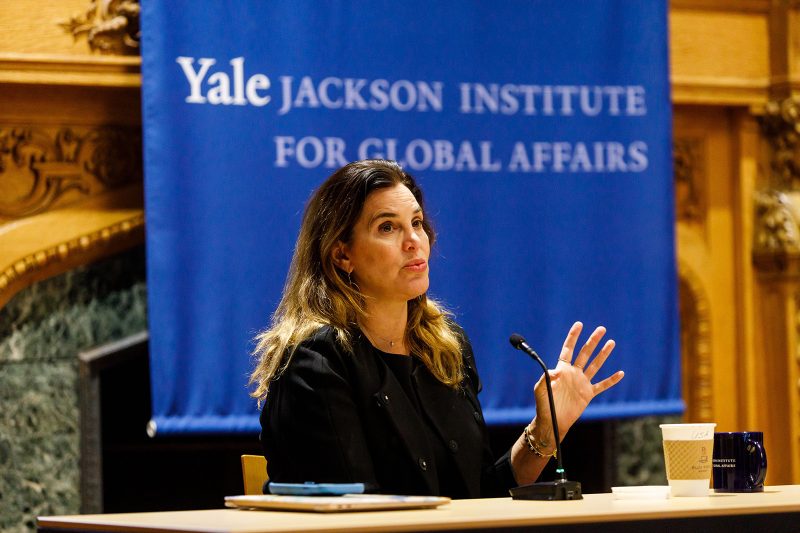Janine Di Giovanni is the author of “The Vanishing: Faith, Loss, and the Twilight of Christianity in the Land of the Prophets.”
On November 2, the Jackson Institute for Global Affairs hosted a discussion with award-winning journalist and Jackson Senior Fellow Janine di Giovanni about her new book, “The Vanishing: Faith, Loss, and the Twilight of Christianity in the Land of the Prophets.”
Ted Wittenstein, executive director of International Security Studies, moderated the conversation.
Di Giovanni opened the discussion by sharing her motivations for writing about the ancient religions of the Middle East, where many Christian communities are facing extinction after 2,000 years in their historical homeland.
Born and raised as a Roman Catholic, di Giovanni talked about attending church in war zones—not only for a sense of peace, but also because spaces of faith provide “a handle on how people are thinking and living,” she said. For more than 30 years, di Giovanni reported from war-torn regions including during the siege of Sarajevo, where she witnessed people being brought together by faith and hope.
While the different Christian communities covered in the book face different challenges—including those living in Iraq, Gaza, Syria, and Egypt—all share a common fear of being eradicated, di Giovanni said.
Christian communities in northern Iraq stayed in their ancestral homes for a long time, even when they deeply feared the 2003 U.S. invasion, Sunni extremism, Turkish airstrikes, and Iran-backed Shia militias, because of their strong ties to the land that gave birth to the prophets, she said. The groups were forced to migrate when extreme drought caused by climate change destroyed their farmlands.
Di Giovanni also highlighted the plight of an ancient community of Christians living in the Gaza Strip, who are prohibited from travel outside the immediate area, and Copts in Egypt, who face discrimination enshrined in the country’s laws, including a ban on building churches or joining the military.
Di Giovanni took audience questions on a variety of topics, touching on the importance of education, preserving diversity in the Middle East, and making use of Track II diplomacy.
“It almost always comes down to education [since] it is the only thing that universally heals,” she said.
Educating young entrepreneurs in Gaza, for example, could provide long-term solutions if they can be convinced to stay and protect their land instead of seeking ways to leave.
“We have to have hope that these groups are going to be protected.”
